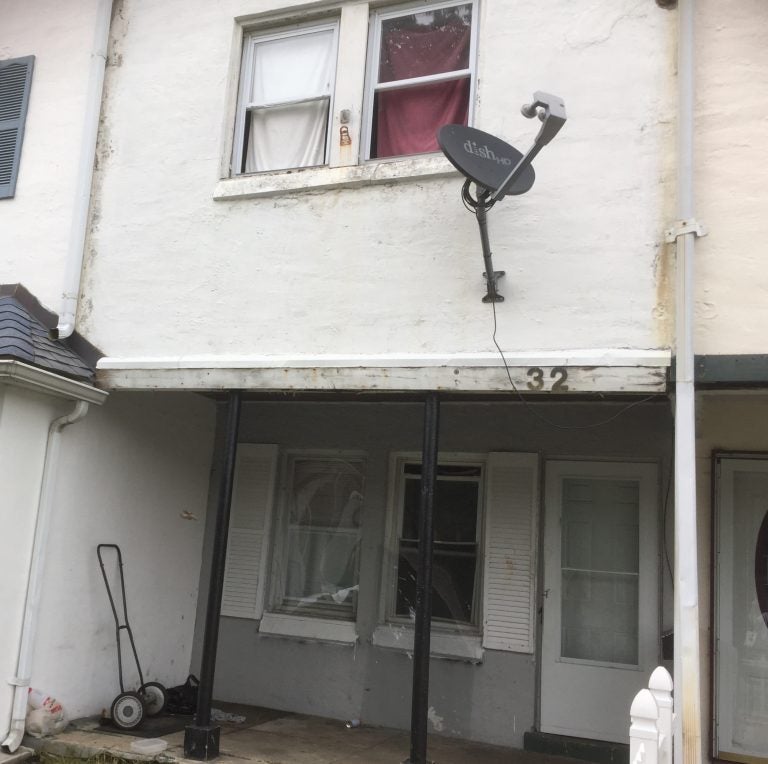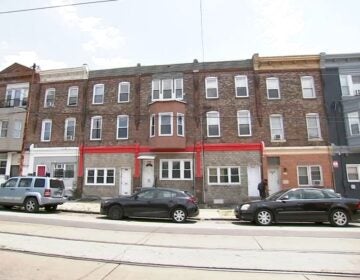Delaware landlord pays $438,000 to settle litany of code violations
The cost covers debt from back taxes, sewer service charges, code enforcement fees, and legal costs.

Landlord George Fantini has agreed to pay New Castle County $438,000 to settle his debt for code violations, back taxes and other infractions at properties such as this one in Claymont. (Zoe Read/WHYY)
A Delaware landlord has agreed to pay $438,000 to New Castle County to settle his debt for back taxes, sewer service charges, code enforcement fees and legal costs.
Across 34 properties owned by George Fantini, those violations resulted in nearly 2,000 county code enforcement inspections and hundreds of police calls, said New Castle County Executive Matt Meyer.
In July, Meyer issued an executive order giving officials the discretion to initiate sheriff sales against scofflaw property owners. “If you’re not paying your taxes as a responsible property owner, and if you’re not treating your tenants within the balance of the law, we as the county were going to act,” Meyer said.
As part of the agreement, Fantini will allow county inspectors to enter his rental properties. He’s also required to hire a licensed contractor to address all code violations identified by the inspectors. Repairs must ensure tenants have access to working electricity, plumbing, heat and hot water. Electrical wiring repairs also are needed, and some properties must be cleared of roach and pest infestations.
In July, several Claymont residents vented their frustrations with the landlord, and 86 people signed an online petition urging the government to pursue criminal nuisance abatement against Fantini on all properties “relating to high crime traffic.”
“One property had a shed full of trash, bursting at the seams, because they didn’t have trash service, and Mr. Fantini, although required, didn’t step up to ensure they had trash service,” said James Smith, assistant general manager of land use for the county.
Fantini was also required to put $55,000 in an escrow account that will go to the county if he violates the terms of the agreement.
Fantini was the biggest offender, but the county’s effort to hold landlords and owners of vacant properties accountable has resulted in the collection of more than $1 million in delinquent taxes.
“Those who are not paying their taxes and fulfilling their legal obligations will be taken to court, will be taken to sheriff sale and will be ultimately held to account for their violations,” Meyer said.
WHYY is your source for fact-based, in-depth journalism and information. As a nonprofit organization, we rely on financial support from readers like you. Please give today.





